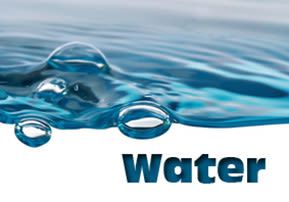
Water
Water is something we often take for granted. The water in our bodies needs to be replenished regularly or we become dehydrated and could die. Torah is compared to water…

“And G-d said: ‘Let there be a firmament in the midst of the waters, let it divide the waters from the waters’ (Bereishit 1:6)
From the beginning of creation, water existed. Water is something we often take for granted, yet without it, all life would cease to exist. Our bodies consist of a significant amount of water, making up approximately 60% of our body weight. The water in our bodies needs to be replenished regularly or we become dehydrated and could die. In many sources, Torah is compared to water. Just as we require water to satisfy our physical thirst, our souls thirst for drinking from the spiritual waters of Torah. But unlike water which can eventually quench one’s need for liquids at any given time, when one begins to consume the knowledge of Hashem, one’s craving for Divine Wisdom only increases.
If you have ever stopped to ponder the significance of water you would find its presence in a multitude of places. Not only is it the foundation of the birth of the universe, it is a vital aspect of birth itself. Almost from the time of conception, a fetus’s home consists of nourishing, protective amniotic fluid until its entry into this world 9 months later. Miraculously, a baby actually swallows and breathes this special water in order to develop.
No less amazing is the growth of vegetation which cannot germinate and grow without water to feed upon. In developed countries, we are so used to going to a supermarket to buy produce that we rarely reflect on the process it took to get there. Only by G-d’s loving kindness of providing rains for the crops are we able to fill our pantries. All the more so, in the Land of Israel where rivers and lakes are few, we must rely solely on Our Father in Heaven. To offer prayers of thanks to Hashem for the rain that falls and the food that sustains us is the least we can do to show our appreciation.
The uses of water are countless. We wash dishes, laundry, and our cars with water. When we are cold, water can be heated up in the form of soup, tea or a hot bath in order to provide warmth. On a hot day, a cool drink or a refreshing swim offers relief. The physical pleasure water elicits is further illustrated by the fact that we are forbidden from washing or bathing on Yom Kippur and other fast days, thereby elevating our level of kedusha, holiness.
Using the analogy of Torah as water, we find that Torah study can be as calming as a swim in a cool, tranquil lake, or as exhilarating as a fun-filled dive into the magnificent waves of the ocean.
Most of us know the story of the greatest Tzaddik of all time, Moshe Rebbeinu, who, as a baby, was set adrift in the Nile River in nothing but a basket of reeds. Later in life, water also played a significant part in Jewish history, when he miraculously split the Red Sea for the Jewish people to escape from Egyptian bondage.
Water is made up of H2O; its oxygen component gives life to the fish in the lakes and seas and to the plant life in the ground. Yet for humans, to be submerged underwater for too long brings certain death. On Rosh Hashanah we solemnly recite “who shall live and who shall die; who by water and who by fire”. As with all aspects of life, Hashem provides us with tools which can be utilized with beneficial results or the complete opposite, depending on our actions. In the story of Noah, G-d used water to destroy the evil of the world, yet through those ravaging flood waters, the world was purified.
Not only do we wash our hands and bodies for physical cleanliness but in Judaism, water is used for spiritual cleansing as well. Water plays a crucial role in several types of purification. We begin our day by washing our hands with a large cup of water to remove the impurities following sleep. We also ritually wash before eating bread, before saying Grace after Meals, and when leaving the bathroom. Upon departing from a cemetery, being near a deceased person or after the cutting of one’s nails, we are also required to rid ourselves of the tuma (impurity) by washing our hands in the specified manner. Submersion of one’s entire body in a Mikveh (ritual bath) is important for the spiritual cleansing of both men and women, but for a wife, it is a fundamental imperative following her time of niddah (menstrual separation). Just as a baby emerges from the waters of his mother’s womb as a new and pure Neshama (soul), we are spiritually ‘reborn’ by immersing ourselves in these sacred waters.
The Hebrew word for water is mayim and Heaven is ShaMayim. On the second day of creation, as The Master of the Universe skillfully molded the world for us, He separated the waters below (lakes, rivers, oceans etc.) from the waters above (mist, clouds etc.).
The journey of our souls is similar to the Water Cycle, whereby clouds dispense rain water that joins the earthly bodies of water, which in turn evaporates and returns to the clouds. Our Neshamas are sent from the upper world, Shamayim to the lower world where we physically dwell. While in this material world, it is our obligation to absorb the wisdom of the Divine Light until our Neshamas return again to their lofty home. It is through this cycle of enlightenment that the Tree of Life is nurtured and will one day blossom with our long awaited redemption. Then ‘the Knowledge of G-d will fill the world as the water covers the seas’ (Isaiah 11.9).







11/29/2009
Wow!………. All I can say is wow! Chaya your article was a real learning lesson. Kol HaKavod!
11/29/2009
All I can say is wow! Chaya your article was a real learning lesson. Kol HaKavod!